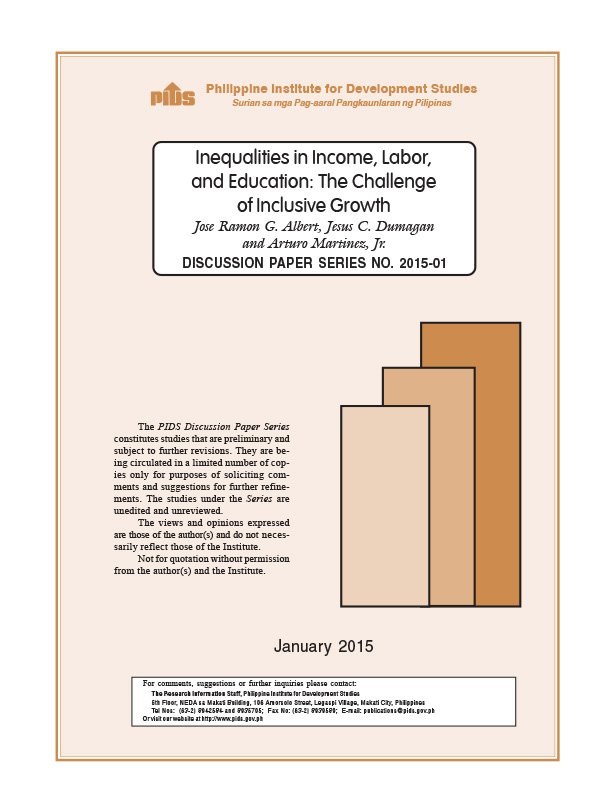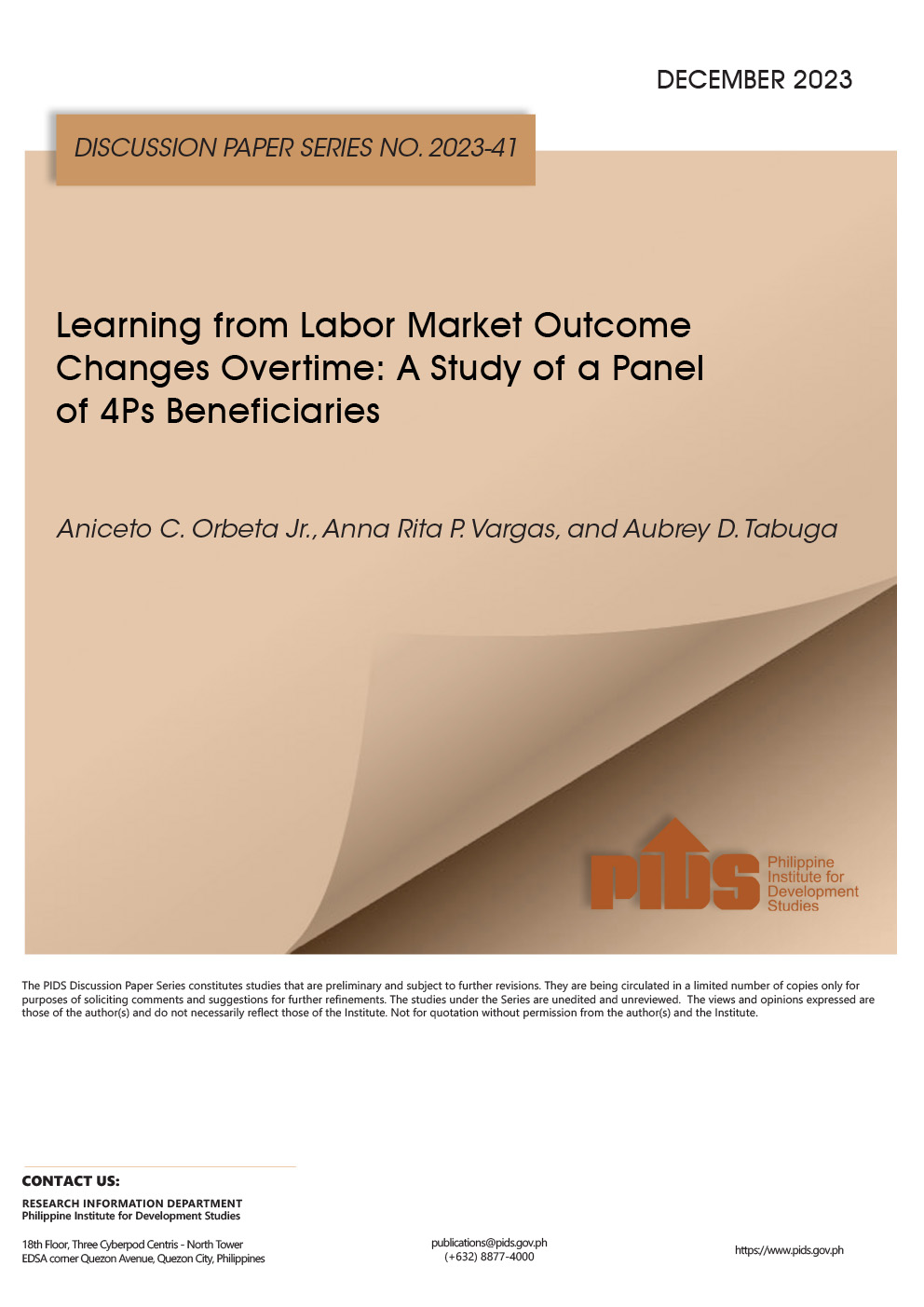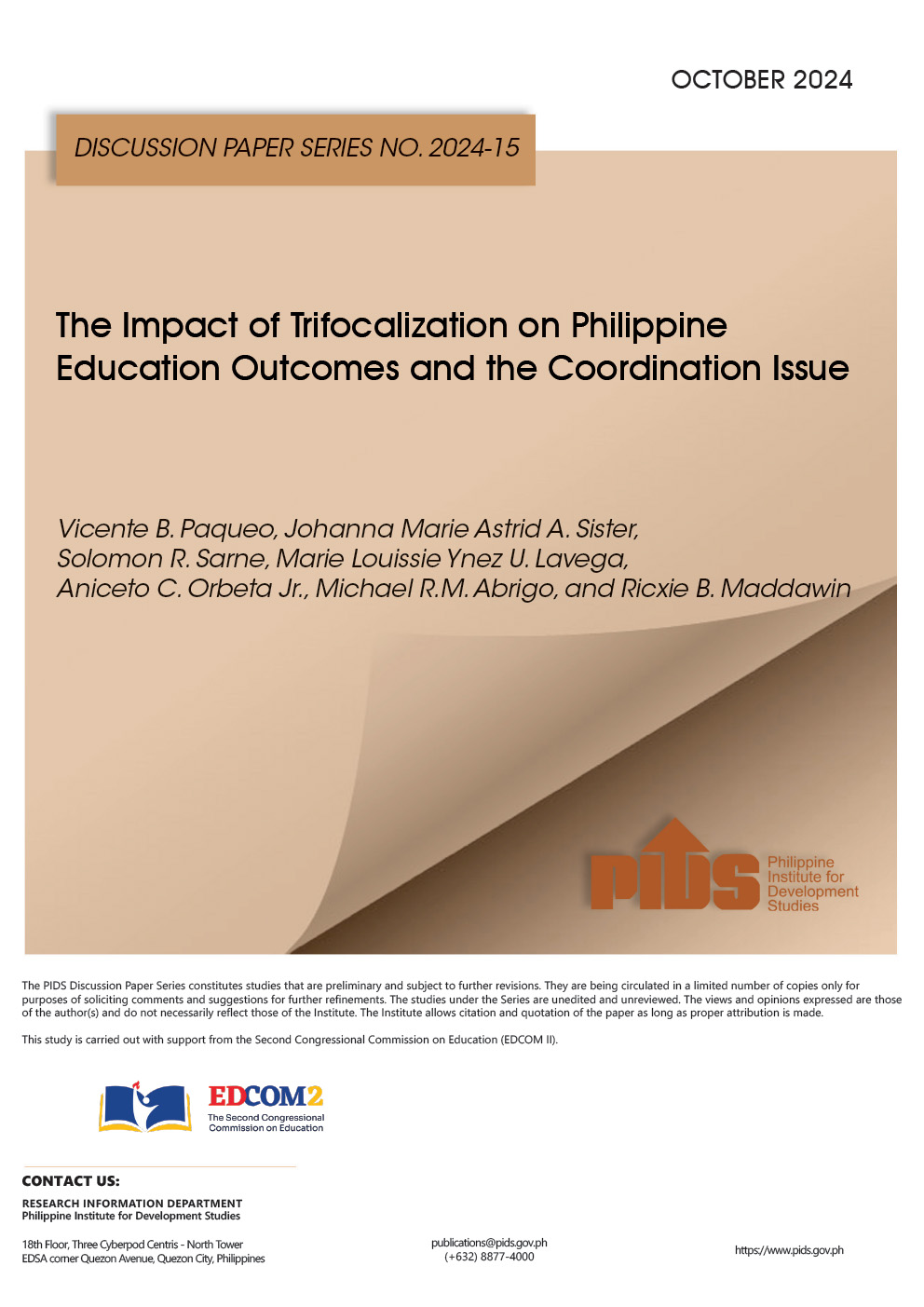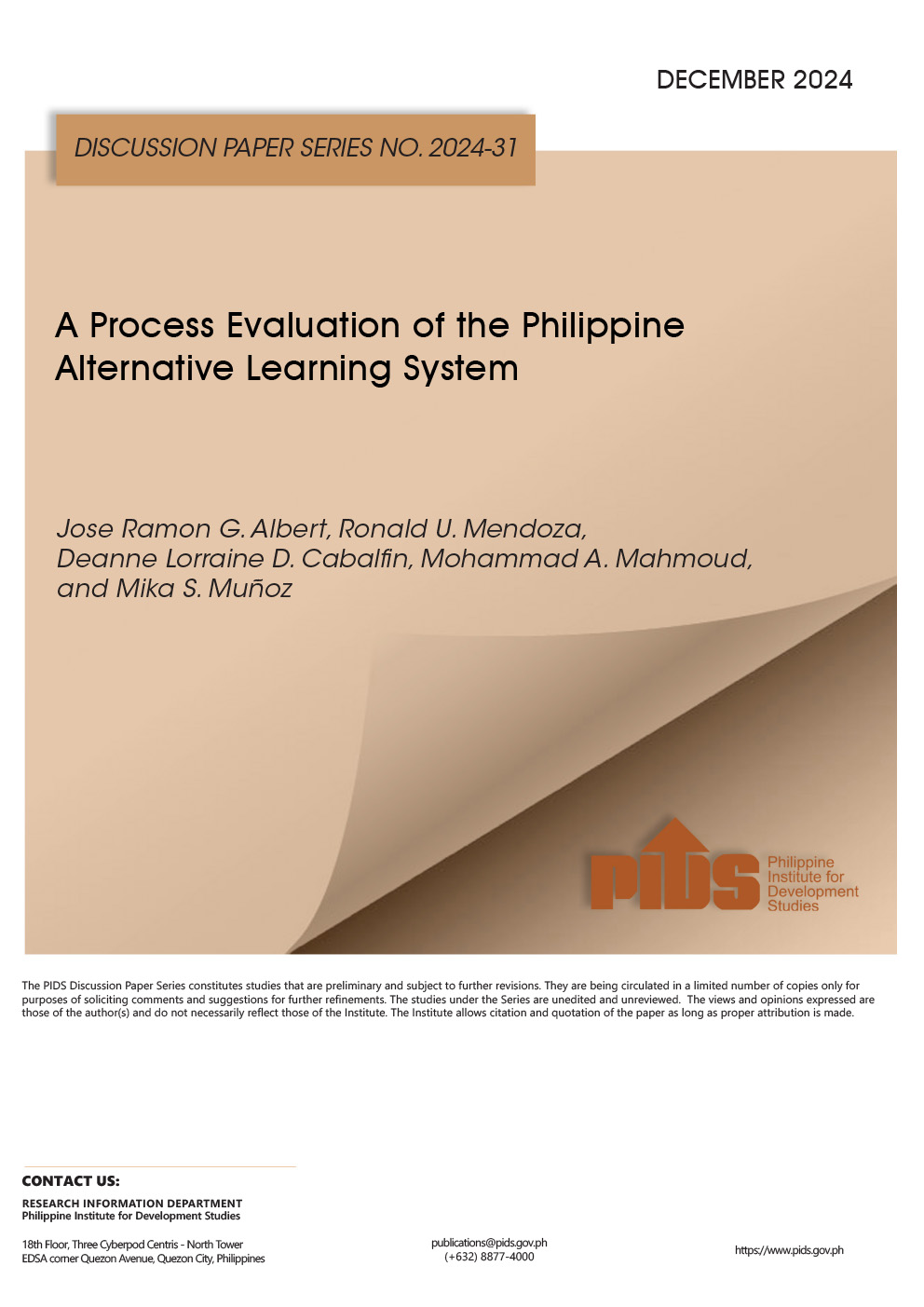While economic growth is important for poverty reduction, the rather stellar performance of the Philippines in economic growth has still not translated into reduction of poverty. This is in large part due to issues pertaining to distribution. Inequalities in income, as well as inequities in labor and education, have provided barriers for everyone to participate in growth processes. The study looks at trends in various statistics on poverty and income distribution, and then examines how disparities in opportunities across rural/urban areas, between the sexes, and between the poorest and richest segments of society in labor and education have prevented the country from reducing poverty. It also examines why the conditional cash transfer program can provide opportunities toward more social and economic inclusiveness.
Citations
This publication has been cited 2 times
- Albert, Jose Ramon and Connie Dacuycuy. 2017. Evaluation and assessment of the effectiveness of the DSWD internal and external convergence as operationalized by the regional, provincial, and city/municipality action teams. Working Papers id:12299. eSocialSciences.
- Albert, Jose Ramon G. and Connie B. Dacuycuy. 2017. Evaluation and assessment of the effectiveness of the DSWD internal and external convergence as operationalized by the regional, provincial, and city/municipal action teams. Discussion Papers DP 2017-32. Philippine Institute for Development Studies.













